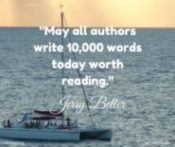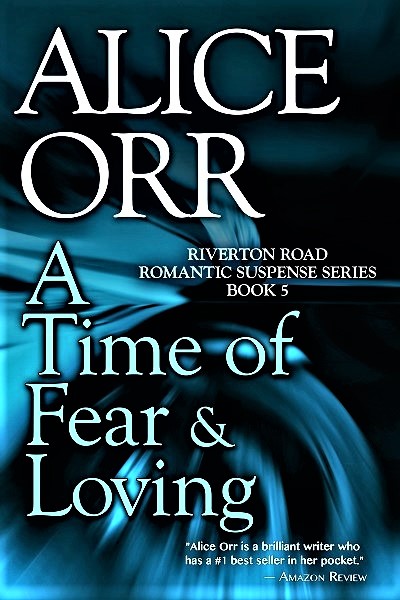Write Thru Crisis – Write It Down. “Go home, get some rest. Marnin’ the world new, every time.” In White Teeth by Zadie Smith, gorgeous Jamaican Carla Bowden says these words to down-and-out Londoner Archie Jones.

Wise advice for today’s gone-to-madness world. Go to ground for a while and lick the wounds created by simply looking at, listening to, walking through the madness. Then, drag yourself up to as straight-back a position as you can manage and, if you are an author, Write It Down.
What is my own personal Biggest Mistake as a writer? Sometimes I don’t write things down. Crucial things that are the stuff of strong storytelling, because they have lots of Emotional Content. Which means they make me cringe and want to look away or, better yet, to run away. To do anything other than drag out my faithful notebook and record the psychic carnage.
We’ve got psychic carnage galore right now, right here in River City or anywhere. So, grab that notebook. Retrieve a stick of charcoal from the charred remains of what you once believed to be a sensible existence, and start scribbling. Fast as you can come up with words to describe the devastation. Because this reality is storytelling paydirt.
Too bad we are also in Biggest Mistake territory. I know this has happened to you, because it happens to all of us. The chaos of life presents you with a knock-your-socks-off story idea, so good you are blown away. So good you can hardly believe this super great fortune has been given to you out of the super obliterated landscape that surrounds you.
I call it the Idea from Heaven, or maybe, in these circumstances, from the other place. What has been given is a glimpse of narrative that, though it may be ugly to others, has for you, the storyteller, elegant symmetry. It is exactly the Inspiration you’ve been yearning for. Nothing short of paradise, or the other place, could deliver such a priceless gem.
You are struck profoundly. You are certain this moment will remain with you forever. It has been imprinted indelibly upon your soul. All the same, your writer’s practicality knows you should write it down immediately. But for some reason, often fairly trivial, you do not. For some reason, notetaking isn’t convenient for you at this particular time.
You don’t intend to put it off for long. You only intend to get done with whatever you’re into right now. Besides, this is the Idea from Heaven, or… A bolt of bestseller storytelling lightning has zigzagged across the deepest blue beauty of your writerly dreams sky. You absolutely will not forget a single detail. Except. You do.

You look for your priceless gem, maybe only minutes later, but it is gone, gone, gone. You search and search. You employ every memory-jog trick and technique you’ve ever heard of, but all you can recall is the feeling. All that remains is a whiff of the euphoria that blew in on this once-in-forever brainstorm. Everything else has evaporated.
You absolutely cannot believe what has happened, but… The story kernel that was destined to catapult you to the stars has flitted off, possibly to some other authorial imagination like a fickle tease, and your own authorial instincts tell you it will never return.
Brain science may have a theory or twelve about this phenomenon. Or maybe the universe if just screwing with you. Whatever the explanation, the upshot is always the same. You plunge into mourning. The Kubler-Ross five stages of adjusting to great loss lie ahead, and it is all your fault. Because all you had to do was write the damned words down, but you did not.
Meanwhile, back to our present definitely not- easy existence. Brainstorms are crashing and booming all around you. Pull your head out from under your comforting soft-stuff-filled comforter, mine is blue by the way. Gaze around you, take it all in, every earth and heaven rattling detail. Then. Write It Down. Write It Down. WRITE IT ALL DOWN!!!
Alice Orr – www.aliceorrbooks.com.
Alice’s latest novel A Time of Fear & Loving – Riverton Road Romantic Suspense Series Book 5 – is available HERE. Praise for A Time of Fear & Loving: “Alice Orr is the queen of ramped-up stakes and page-turning suspense.” “Warning. Don’t read before bed. You won’t want to sleep.” “The tension in this novel is through the roof.” “I never want an Alice Orr book to end.” “Budding romance sizzles in the background until it ignites with passion.” “The best one yet!”

A Thankless Season – Riverton Road Road Romantic Suspense Series Book 6 – the series finale, is in progress. Stay tuned for further alerts. And, Write Them Down!
Look for all of Alice’s books HERE.
https://www.facebook.com/aliceorrwriter
http://twitter.com/AliceOrrBooks/
http://goodreads.com/aliceorr/
http://pinterest.com/aliceorrwriter/
Alice, I have a pad beside my computer where I write down things, all the time. Some are reminders to call someone. Others are notes on what I’m working on. At the moment, I’m on deadline. Three chapters to rewrite before June 1. I’m a draft writer so that means paying attention to all the notes I’ve written on the printed pages and putting the book in order. As far as new stories, I select which book comes next and tell myself a story as I’m falling asleep. In a month or two, I have the usual opening of the book ready to write down/
Hi Janet. What a wonderful description of the way youu work. We each go at it differently, but I like your emphasis on the ongoing nature of the imaginative process. It is always with us. If we work consistently on a project, it remains alive in our heads, sometimes even more so than what is going on in what we call “real” life. We also each have our own methods of capturing new ideas and not allowing them to escape. Notes all over the pages has always been an important tactic for me too. Which is why I strongly recommend making a hard copy of the draft version of what you write, so you can mark it up, reconsider it, enhance it at will. I know there are ways to do that on the computer, but I’m not tech savvy enough to know them, and I don’t really regret that. I enjoy the pen on paper part, and how it can encourage a story to grow, both in and outside the imagination. I’ve also carried a story to near-sleep with me, but not to the extent you describe. We might all do well to incorporate that discipline. Blessings. Alice
Oh, boy, this happens to me all the time! And I say “next time, write it down” but then of course I KNOW I’ll remember it! Nope!
Hi Hannah. What I say below to Kayelle, about forgetting the unforgettable idea syndrome, is key, because we always sincerely believe we won’t do it, that the great idea is too great to disappear, that it will still be there in the morning, or whenever. But then, horror of horrors (for a writer in particular), it is gone and irretrievable. Forgive me if I repeat (hoping that repetition will foster learning in me). With many/most of my blog posts, I am also writing to myself, trying to knock myself on the head and make the impression that needs to be made, on myself as well as others. I have lost “the idea from heaven” too many times to count. Yet, all I, or anyone else, has to do when inspiration strikes is Write It Down. Let’s try to do more of that if we can. Blessings, Alice
Dear Hannah. You have commented on my blog posts in the past. I invite you to explore my most recent series. It is titled “Oh No I’m a Caregiver – Dementia – Our Cautionary Story.” These posts are of special significance to me. Dementia appears to be a reality destined to assault all of our lives in one way or another eventually. I believe that the story I have to tell – through my initial post and others yet to come at https://www.aliceorrbooks.com – has valuable insights to offer. For this reason, I hope you will read it and pass it on to others so that they might benefit from what I am learning and from those insights.
For example… My husband Jonathan, who has recently been diagnosed with dementia, is actually quite fine at this early stage. He is engaged in lots of cognitively powerful activities. He writes original memoir pieces that are very good and says this is the result of sitting in on so many of my writing workshops over the past forty-five years. He now finds more joy in writing than the drawing and music that were his usual creative pursuits in the past. This is good because, as you know, portraying characters and composing scenes require a deep level of focus and detail concentration which is very beneficial for him. He also loves jigsaw puzzling – the 1500-piece variety. Again much concentration is required plus he has fond memory associations of doing puzzles with his mom when he was a boy. He also reads a lot – challenging books, as well as his favorite New York Times articles. He does regular physical exercise and has also begun gardening at our church which has a large planted space in sore need of attention. Medically, he is taking a basic drug that has disappeared his brain fog for the timebeing. We also have excellent medical professionals on our team and on our side.
Dementia is not like the tv commercials portray it to be. Their purpose is to ramp up fear and sell very expensive, very dangerous drugs. There is a long, gradual period before extreme changes begin, and the aggressiveness these ads emphasize can often be mitigated with simple mood medications that are harmless and affordable.
Meanwhile, there is a real-life story to be told here of real-life experience. I hope you will read and share it. Dementia is a reality for many of us and, unfortunately, promises to be a reality for many more. Truth is our best armor against being cast into despair by the prospect. I hope to add a little to that sustaining truth. Dementia is one of the many ways all of us will evolve from this life into whatever may lay beyond. Passing on is our universal destiny. Some of those passages involve discomfort and unpleasantness. We can perhaps be a bit better prepared if we understand realistically what to expect.
That is what our story – Jonathan’s and mine – is meant to do. Help others – in an honest and caring fashion – to be prepared. Love and Blessings. Alice
+1000. Alice is right! Write it down. Immediately.
When opening a notebook is just too much, index cards are just right. Lightweight and you don’t even need to open them. Carry a few (plus a pen/pencil) in your bag or pocket or keep a few on your night table for those middle-of-the-night brainstorms.
Hi Ruth. It’s great to see you here. Thanks so much for your comment, and especially for the fine advice. Index cards (I prefer the 5 by 8 inch variety, because they give me room to go back and expand on my jottings later on) were for a long time one of my most useful and used writerly tools. Then, for some reason, most likely the intervention of my “real” life, I fell out of the habit of carrying them. Thank you for reviving my memory of that short-sightedness. As soon as I stop typing this, I intend to hunt down my index card stash and plant packets of them everywhere – my bedside table, the bookcase next to my favorite couch seat, and especially the overweight bag I carry everywhere that supposedly has everything in it to assure my survival, except this one crucial thing. Here’s to never, or at least not as frequently, forgetting the unforgettable again. Blessings, Alice
Dear Ruth. You have commented on my blog posts in the past. I invite you to explore my most recent series. It is titled “Oh No I’m a Caregiver – Dementia – Our Cautionary Story.” These posts are of special significance to me. Dementia appears to be a reality destined to assault all of our lives in one way or another eventually. I believe that the story I have to tell – through my initial post and others yet to come at https://www.aliceorrbooks.com – has valuable insights to offer. For this reason, I hope you will read it and pass it on to others so that they might benefit from what I am learning and from those insights.
For example… My husband Jonathan, who has recently been diagnosed with dementia, is actually quite fine at this early stage. He is engaged in lots of cognitively powerful activities. He writes original memoir pieces that are very good and says this is the result of sitting in on so many of my writing workshops over the past forty-five years. He now finds more joy in writing than the drawing and music that were his usual creative pursuits in the past. This is good because, as you know, portraying characters and composing scenes require a deep level of focus and detail concentration which is very beneficial for him. He also loves jigsaw puzzling – the 1500-piece variety. Again much concentration is required plus he has fond memory associations of doing puzzles with his mom when he was a boy. He also reads a lot – challenging books, as well as his favorite New York Times articles. He does regular physical exercise and has also begun gardening at our church which has a large planted space in sore need of attention. Medically, he is taking a basic drug that has disappeared his brain fog for the timebeing. We also have excellent medical professionals on our team and on our side.
Dementia is not like the tv commercials portray it to be. Their purpose is to ramp up fear and sell very expensive, very dangerous drugs. There is a long, gradual period before extreme changes begin, and the aggressiveness these ads emphasize can often be mitigated with simple mood medications that are harmless and affordable.
Meanwhile, there is a real-life story to be told here of real-life experience. I hope you will read and share it. Dementia is a reality for many of us and, unfortunately, promises to be a reality for many more. Truth is our best armor against being cast into despair by the prospect. I hope to add a little to that sustaining truth. Dementia is one of the many ways all of us will evolve from this life into whatever may lay beyond. Passing on is our universal destiny. Some of those passages involve discomfort and unpleasantness. We can perhaps be a bit better prepared if we understand realistically what to expect.
That is what our story – Jonathan’s and mine – is meant to do. Help others – in an honest and caring fashion – to be prepared. Love and Blessings. Alice
This is exactly what happens when I’m drifting off to sleep and have an idea “so great I can’t possibly forget it.” Next day, all I remember is that I had a great idea, with no idea what it was. >_<
Me too Kayelle. Forgetting the unforgettable idea syndrome is probably universal. If we don’t write it down, we may very possibly have lost it. This has happened to me many times, and the frustration is maddening. I search my brain over and over and cannot find the gem idea anywhere. Worse still, I persist in doing the same thing. I don’t seem to learn, or even be capable of learning. As with so many of my blog posts, I am also writing to myself, trying to knock myself on my hard head and finally make the impression that needs to be made. Good luck to both of us. And may we remember this simple fact, all we have to do is Write It Down. Blessings, Alice